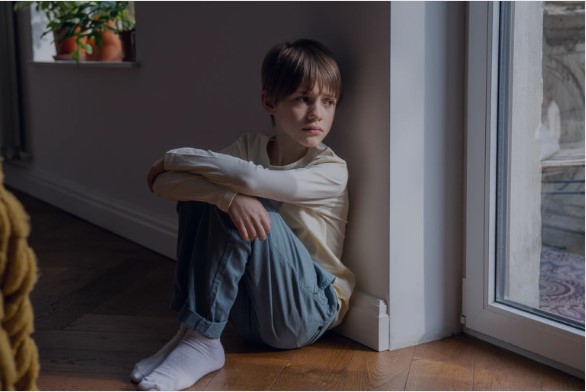When Can You Leave a Child Home Alone?

Navigating the journey of child independence is a pivotal aspect of parenting. Understanding the appropriate age to leave your child home alone is not only crucial for their safety but also for their developmental progress. This comprehensive article delves into the intricacies of this vital decision, providing parents with the necessary guidance and insights to make informed choices.
In the diverse landscape of the United States, laws regarding the minimum age for a child to be left home alone vary significantly across states. While a substantial number of states, 36 to be precise, including Alabama, Alaska, Arizona, and others, do not set a specific minimum age requirement, the approach towards this matter differs elsewhere. States like Georgia, Maryland, and North Carolina set the bar at 8 years old, whereas others like Colorado and Delaware opt for a higher threshold of 12 years old. Illinois stands out with its requirement of 14 years old.
It’s imperative for parents to recognize that the absence of a specific age law in a state does not exempt them from potential legal consequences. In situations where a child is left alone and encounters harm, parents could face charges of neglect or endangerment. Moreover, several states offer guidelines or recommendations to assist parents in judging the suitability of leaving their child unattended at home.
This article aims to navigate the complex legal landscape and parental responsibilities, ensuring that the transition into allowing children some alone time at home is both safe and beneficial for their growth and independence.
Table of Contents
Here is a table listing “Home Alone Rules by State,” including the State and the Legal Age at which a child can be left alone.
| State | Legal Age a Child can be Left Alone |
|---|---|
| Arizona | No Minimum Age |
| Arkansas | No Minimum Age |
| California | No Minimum Age |
| Colorado | 12 Years Old |
| Connecticut | No Minimum Age |
| Delaware | 12 Years Old |
| Florida | No Minimum Age |
| Georgia | 8 Years Old |
| Hawaii | No Minimum Age |
| Idaho | No Minimum Age |
| Illinois | 14 Years Old |
| Indiana | No Minimum Age |
| Iowa | No Minimum Age |
| Kansas | 6 Years Old |
| Kentucky | No Minimum Age |
| Louisiana | No Minimum Age |
| Maine | No Minimum Age |
| Maryland | 8 Years Old |
| Massachusetts | No Minimum Age |
| Michigan | 11 Years Old |
| Minnesota | No Minimum Age |
| Mississippi | No Minimum Age |
| Missouri | No Minimum Age |
| Montana | No Minimum Age |
| Nebraska | No Minimum Age |
| Nevada | No Minimum Age |
| New Hampshire | No Minimum Age |
| New Jersey | No Minimum Age |
| New Mexico | 10 Years Old |
| New York | No Minimum Age |
| North Carolina | 8 Years Old |
| North Dakota | 9 Years Old |
| Ohio | No Minimum Age |
| Oklahoma | No Minimum Age |
| Oregon | 10 Years Old |
| Pennsylvania | No Minimum Age |
| Rhode Island | No Minimum Age |
| South Carolina | No Minimum Age |
| South Dakota | No Minimum Age |
| Tennessee | 10 Years Old |
| Texas | No Minimum Age |
| Utah | No Minimum Age |
| Vermont | No Minimum Age |
| Virginia | No Minimum Age |
| Washington | 10 Years Old |
| West Virginia | No Minimum Age |
| Wisconsin | No Minimum Age |
| Wyoming | No Minimum Age |
Please note that while this table provides a general guideline, it is always advisable to check the most current state laws and regulations, as they can change over time.
Understanding the Legal Perspective
Every country and state has its laws regarding the age at which a child can be left alone. These guidelines serve as a basic framework, but they’re just the starting point. Parents must consider these legal parameters while assessing their child’s readiness.
Assessing Your Child’s Readiness
Determining if your child is ready to stay home alone involves evaluating their maturity level, ability to handle responsibilities, and skills in managing emergencies. It’s a subjective assessment that varies from child to child.
Creating a Safe Environment
Ensuring a safe environment is paramount. This includes implementing safety measures at home, providing emergency contact information, and setting clear boundaries on what is and isn’t allowed during the parent’s absence.
Gradual Independence
Starting with short periods of time and gradually increasing the duration can help ease both the child and the parent into this new phase. It’s a step-by-step approach to foster independence.
Communication Strategies
Maintaining open lines of communication is essential. This includes regular check-ins and establishing clear rules and expectations. This helps in building trust and ensuring safety.
Building Confidence and Trust
Trusting your child and building their confidence is a two-way process. It requires patience and understanding from the parent and responsible behavior from the child.
Common Concerns and Solutions
Addressing common concerns like fear and anxiety and preparing for unexpected situations are part of the learning process. Parents should equip their children with the knowledge and tools to handle these situations.
Technology as an Aid
Using monitoring apps and tools can provide an additional layer of safety. However, it’s important to balance safety with privacy and trust.
Preparing for Emergencies
Teaching your child basic first aid and emergency procedures is crucial. Role-playing different scenarios can also be an effective way to prepare them.
Learning from Experience
Reflecting on the experiences, both good and bad, and adjusting strategies accordingly is part of this journey. Parents should be open to learning and evolving their approach.
Community and Peer Support
Seeking advice from other parents and involving neighbors or community members can provide additional support and resources.
When It’s Not Working
It’s important to recognize when a child is not ready to be left alone and to revert to supervision if necessary. Not all children adapt at the same pace.
Legal Consequences of Negligence
Parents should be aware of the legal consequences of negligence. Understanding these risks is crucial for making responsible decisions.
Conclusion
Deciding when to leave a child home alone is a significant step that requires careful consideration of legal, emotional, and practical factors. By following these guidelines, parents can encourage responsible independence in their children.

- The legal age a child can be left home alone in the US is 18 years old
- There are some states that have exceptions to this rule, like if the child is mature enough or there is another adult present in the home
- If you do leave a child home alone, make sure they have your contact information and know how to reach you in case of an emergency
- Give them a list of things they are and are not allowed to do while you’re gone
- Check in on them periodically to make sure they’re doing okay
- When Can You Leave a Child Home Alone: Safety Tips
- If something happens while you’re away, don’t blame yourself – accidents happen
Leaving a Child Home Alone and the Law
The safety of children is always a top priority, which makes the legality of leaving a child home alone an important consideration for parents. Depending on the age of the child and local laws, it can be illegal to leave a child at home without adult supervision for any period of time.
In most places, there is no hard-and-fast rule about how old a child must be before they are legally allowed to stay at home by themselves. Generally speaking however, children under 8 years of age should not be left home alone. The exact law varies from state to state – some states even require kids to be as old as 12 before they’re legally allowed to remain at home without parental guidance like Maryland and Delaware. It’s best to look into each state’s regulations on the matter before making any decisions.
It’s also recommended that when leaving children aged 8 or older at home unsupervised that parents provide clear instructions on what is expected such as sticking to their established bedtime curfew, not opening the door for strangers and being aware of emergency contact numbers in case anything unexpected happens.
Ultimately, it is up to parents to decide if their child is mature enough and responsible enough to remain alone safely at home – but it’s always wise to proceed with caution and make sure you know your local laws regarding guardianship in order to avoid any legal issues or penalties down the line.
Parents should also be aware of the state specific laws when it comes to leaving a child home alone. Depending on where parents live, there may be different legal requirements regarding when and for how long a child is allowed to be left unsupervised.
Each state has its own policies and regulations regarding the legal age at which a child may be left home alone. Generally, these rules fall into three categories:
- Ages 7 & Under – Should not be left alone for any period of time.
- Ages 8 to 10 Years – Should not be left alone for more than 1½ hours and only during daylight and early evening hours.
- Ages 11 to 12 Years – May be left alone for up to 3 hours but not late at night or in circumstances requiring inappropriate responsibility.
- Ages 13 to 15 Years – May be left unsupervised, but not overnight.
- Ages 16 to 17 Years – May be left unsupervised (in some cases, for up to two consecutive overnight periods).
It is important that parents familiarize themselves with their state’s laws before leaving their children unattended. For instance, some states require written permission from a parent or guardian if a minor is left unattended for an extended period of time, while others allow minors as young as 14 years old to stay home unaccompanied for short periods of time.
If you’re a parent, you know that the welfare of your children is always your first priority. But sometimes, circumstances arise where you have to leave them home alone. Whether it’s for a quick errand or an extended period of time, it’s important to know when it’s safe to do so – and when it isn’t. Here are some guidelines to help you make the best decision for your family.
The legal age a child can be left home alone in the US is 18 years old
Every parent wants their child to be safe and secure, so when it comes to leaving them unaccompanied at home, there are many considerations. According to US family law, the minimum legal age a child can be left home alone is 18 years old. This age ensures that they have the maturity, understanding, and practical skills needed to stay safe while in a potentially dangerous situation.
Though parental rights allow discretion on this matter, parents should also consider their own liability in terms of any harm or neglect that may occur due to the decision. It is important for parents to remember that their children’s safety is always paramount, and it is ultimately their responsibility if an unfortunate incident were to take place while they are away from their kids.
When Can You Leave a Child Home Alone: Safety Tips
It’s important to know when your child is ready to stay home alone. It can be tricky to decide when it’s time, but there are some key safety considerations you need to keep in mind.
First, make sure your child has the maturity level and skills necessary for staying home alone. Your child should understand basic safety rules, such as not opening the door before checking who is outside, not interacting with strangers, and calling 911 if there is an emergency. They should also understand the home’s emergency evacuation plan, just in case a fire starts while they are home alone.
Additionally, consider the physical layout of your home; if possible have another room with an accessible window or door that could be used as a quick escape route in case of emergency. Check that all locks and windows are secure before you leave them alone and make sure to remove any hazards from around the house—such as cleaning supplies or easily-accessible breakable items—that could pose a threat when left unattended.
Finally, try leaving your child alone for short periods at first before having them stay home completely unsupervised for longer stretches of time. If your child feels uneasy about being left alone talk to them about their anxieties before progressing to longer stays; give them a way to reach out (e.g., writing down phone numbers for family members) if they need help or reassurance during these times.
With proper preparation and conversation you can provide comfort and security for both you and your child when considering leaving them at home alone!
There are some states that have exceptions to this rule, like if the child is mature enough or there is another adult present in the home
Although most states have laws prohibiting children under the age of eighteen from being left home alone, there are certain situations where this is allowed. These states recognize that with the right maturity and circumstances, a child can still handle such responsibility well.
The primary exceptions to this rule are when a child is judged mature enough to be on their own or if another adult is present in the home. This allows parents to make decisions that best suit their living situation and family dynamics while ensuring their children’s safety and well-being at all times.
If you do leave a child home alone, make sure they have your contact information and know how to reach you in case of an emergency
When a parent leaves a child home alone, it’s important to make sure the caregiver has access to all the necessary contact information if something were to happen. Going over how to use a phone and creating an emergency action plan should be top priorities. Make sure they know who in your family or network of friends is nearby that could help in case of an emergency.
Additionally, remind the caretaker of your return time, so that you are available for any additional support needed. It can be scary for children being left alone, but by giving them plenty of support beforehand it can make all the difference in making sure they have a safe and positive experience.
Give them a list of things they are and are not allowed to do while you’re gone
When you leave for a few days, it can be difficult to think about all the things that may come up while you’re away. To ensure that your house and everything inside remains in the condition you left it in, make sure to provide your family with a list of expectations for when you are gone.
Let them know what activities are okay and what activities are a no-go – from ensuring no wild parties take place at the house, to eating food only from the pantry and not spending too much of your hard-earned money on frivolous items. Make sure to be clear and provide them with a succinct list to follow so that everyone is on the same page. After all, coming home after an extended absence should be stress-free!
Check in on them periodically to make sure they’re doing okay
Checking in on others to make sure they are doing as well as can be expected is an act of kindness that goes a long way. Even if you feel like the other person wouldn’t appreciate your attempt, simply knowing that you took the time and effort to reach out will ensure them that someone cares enough about their wellbeing.
There is no wrong way to check in on others, whether it is with kind words, a small gesture of appreciation, or just sending an encouraging message; these acts of kindness will help create strong and supportive bonds. Practicing these kinds of thoughtful acts can turn any relationship into meaningful one so make sure to check in periodically!
If something happens while you’re away, don’t blame yourself – accidents happen
It’s easy to assume that if something unwanted happens when you’re away, you are at fault for not being there. After all, being physically present with your loved ones is comforting and provides an added sense of security. But life is unpredictable and things can happen even when you’re around.
Accidents have no consideration for our schedules or whereabouts and can occur despite our best efforts to prevent them. Instead of blaming yourself and questioning what could have been done differently, place your emphasis on responding swiftly and positively to the current situation in order to restore a sense of calm as soon as possible.
FAQ: Leaving a Child Home Alone
Question 1: What is an acceptable age to leave a child home alone?
Answer 1: The appropriate age to leave a child home alone can vary greatly depending on the child’s maturity, the specific circumstances, and legal guidelines in your area. Typically, children around 10 to 11 years old may start to show the maturity required for being alone on a regular basis. However, this can differ from child to child.
For some parents, leaving a mature 8- or 9-year-old home alone for a short period, such as half an hour, might be acceptable on occasion. It’s crucial to consider how the child has previously handled responsibility, their ability to follow instructions, and their comfort level with being alone.
When deciding if your child is ready, evaluate their knowledge and understanding of safety procedures, their ability to recognize and respond to emergencies, and their general awareness of their own well-being. It’s also important to consider the environment they’ll be in; ensure that the home is safe and that they have access to a responsible adult, whether it’s a neighbor or a family member they can call.
Additionally, it’s vital to prepare your child for this step towards independence. Discuss clear rules and expectations, establish a way to communicate while you’re away (such as regular check-ins), and ensure they know what to do in various scenarios, like a power outage or if someone knocks on the door.
Each child’s readiness for staying home alone will depend on individual factors, and as a parent or guardian, your judgment plays a crucial role. It’s a significant decision that should be approached with thoughtful consideration of all these aspects.
Question 2: At what age can kids stay home alone ?
Answer 2: The appropriate age for kids to stay home alone varies significantly and depends on several factors, including state laws, the child’s maturity level, and specific family circumstances. In the United States, there is no federal law specifying the age at which a child can be left home alone. Instead, this is determined at the state level, and the guidelines vary.
Some states have specific minimum age requirements. For instance, Illinois mandates that a child should be at least 14 years old, whereas states like Colorado and Delaware set the minimum age at 12 years. In contrast, Georgia, Maryland, and North Carolina have a lower age limit of 8 years. However, a majority of states, including California, New York, and Texas, do not specify a minimum age, leaving the decision to the discretion of the parents or guardians.
It’s important to note that even in states without a specific age requirement, parents can face legal consequences if leaving their child alone is deemed to put the child’s safety at risk. Therefore, beyond legal considerations, parents should assess their child’s individual maturity and readiness. This includes evaluating whether the child can follow safety rules, handle emergencies, and feel comfortable being alone.
Parents should also consider the duration for which the child will be alone, the overall safety of the home environment, and whether the child has access to a responsible adult in case of an emergency. Preparing the child with clear safety instructions, emergency contact information, and establishing check-in routines can also contribute to a safer and more reassuring experience for both the child and the parent.
Ultimately, the decision to leave a child home alone should be made with careful consideration of legal guidelines, the child’s readiness, and the specific context of the situation. It’s a significant step towards fostering independence and should be approached responsibly.
Question 3: Can you go to jail for leaving a child home alone?
Answer:
The legal repercussions for leaving a child home alone vary significantly across different states, but many jurisdictions may impose fines or even jail time depending on the circumstances. While a parent’s right to make decisions for their child is fundamental, this right is balanced against the state’s duty to ensure the safety and welfare of children.
If a situation arises where a child is left home alone and this leads to harm or a significant risk of harm, the legal consequences can be serious. Each state has its own child welfare laws, and what constitutes neglect or endangerment can differ. In cases where a child is found to be in an unsafe situation, or if leaving them alone is deemed negligent, parents or guardians could potentially face criminal charges, including child endangerment or neglect.
It’s important to understand that courts generally step in when there is a concern about the child’s well-being. The age of the child, length of time left alone, overall safety of the environment, and the child’s ability to respond to emergencies are all factors that could be considered in determining whether the child was in a harmful situation.
In some states, child protective services may also get involved to assess the child’s safety. This could lead to various outcomes, ranging from offering guidance and resources to parents, to more severe measures like removal of the child from the home in extreme cases.
Therefore, while the act of leaving a child home alone does not automatically lead to legal consequences, it is crucial for parents to make informed decisions based on their child’s maturity, state laws, and the specifics of their situation. Ensuring the child’s safety and ability to manage being alone is key to avoiding potential legal issues.
Expert Family Lawyer Guidelines for Determining the Right Time to Leave Your Child Home Alone
Criteria for Deciding When to Leave a Child Home Alone: Guidance from Family Lawyer Experts
Legal Age Requirements by State: Familiarize yourself with the legal age restrictions for leaving a child home alone in your state. This is the foundational step to ensure you're compliant with state laws. - 99%
Child's Maturity Level: Assess your child's overall maturity. Are they able to make sound decisions in unexpected situations? Do they follow rules and understand the consequences of their actions? - 100%
Emotional Readiness: Evaluate if your child feels comfortable and confident being alone. Some children may meet the age requirement but still feel anxious or scared when left alone. - 98%
Understanding of Safety Measures: Ensure your child knows basic safety measures, such as not opening the door to strangers, what to do in case of an emergency, and how to use home security systems if available. - 97%
Ability to Handle Emergencies: Can your child respond appropriately in an emergency? Do they know how to contact emergency services, use basic first aid, and follow emergency procedures? - 99%
Communication Skills: Your child should be able to effectively communicate their needs or any issues that arise. This includes being able to use a phone to call for help or check in with a parent. - 98%
Physical Needs: Consider if your child can take care of their basic needs like preparing a simple meal, managing bathroom needs, and adhering to a routine. - 100%
Duration and Time of Day: The length of time and the time of day you plan to leave the child alone are critical. Shorter durations during daylight hours are generally more advisable for initial experiences. - 97%
Neighborhood Safety and Accessibility: The overall safety of your neighborhood and the accessibility of neighbors or nearby relatives who can assist in an emergency is an important factor. - 99%
Instructions and Information: Leave clear instructions for your child, including emergency contact numbers, information about where you will be, and expected return time. - 100%
Trial Periods: Start with short trial periods to gauge how your child manages being alone. Gradually increase the time based on their comfort and competence. - 98%
Feedback from the Child: After each instance of being left alone, discuss the experience with your child. Get their feedback and address any concerns or fears they might have. - 99%
Guidance on Appropriate Activities: Provide guidelines on what is appropriate to do while they are home alone, such as homework, reading, or specific TV shows, and set boundaries for activities that are not allowed. - 100%
Check-in Protocols: Establish a protocol for regular check-ins. This could be a phone call or a text at predetermined times. - 97%
Awareness of Responsibilities: Make sure your child understands the responsibility that comes with being home alone and the trust you're placing in them. - 99%
99%
Score:
Remember, these criteria are meant to serve as a guide. The decision to leave a child home alone is a personal one and should be made based on a thorough assessment of the child's individual capabilities and the specific circumstances.






